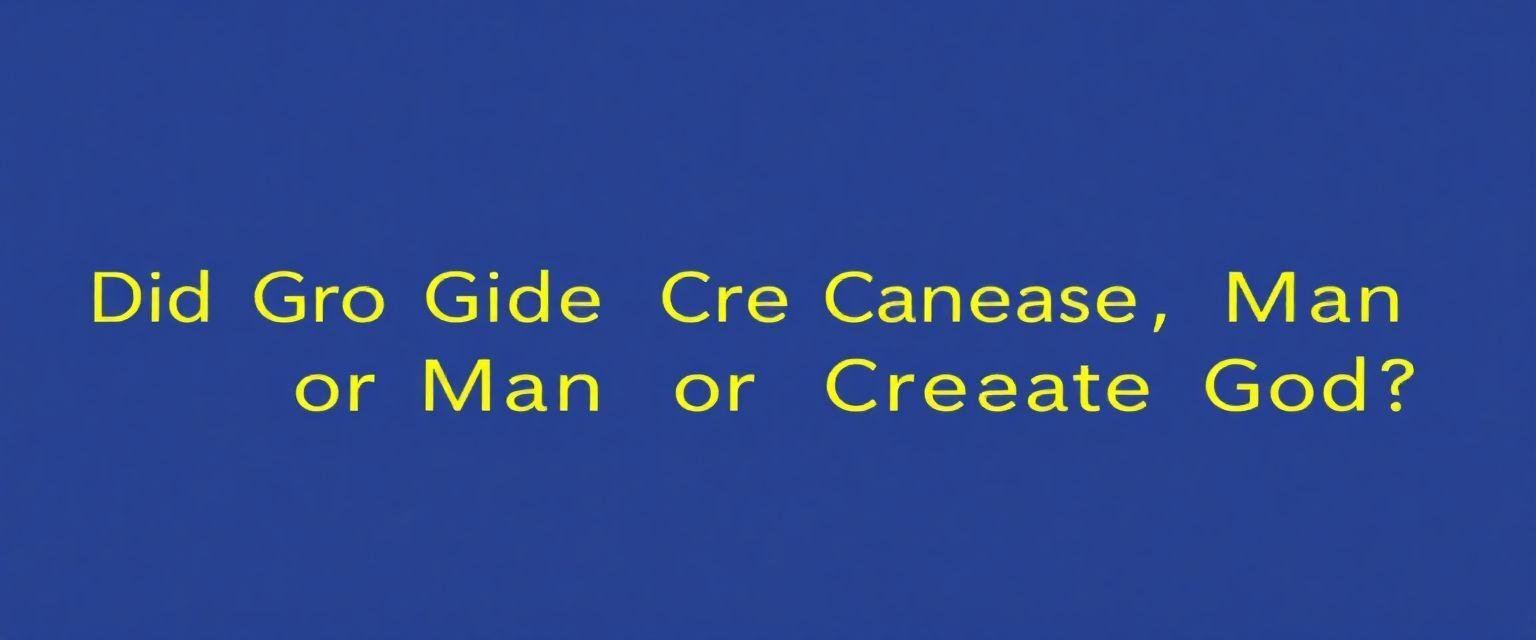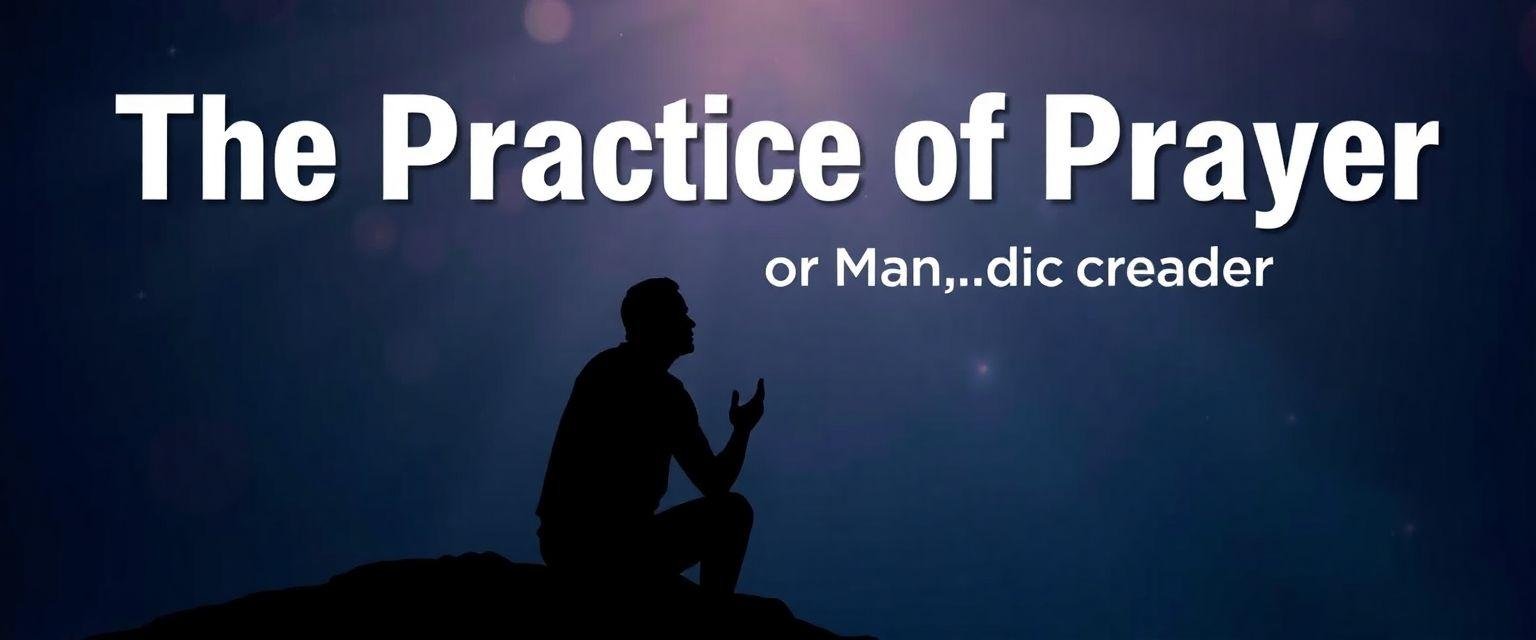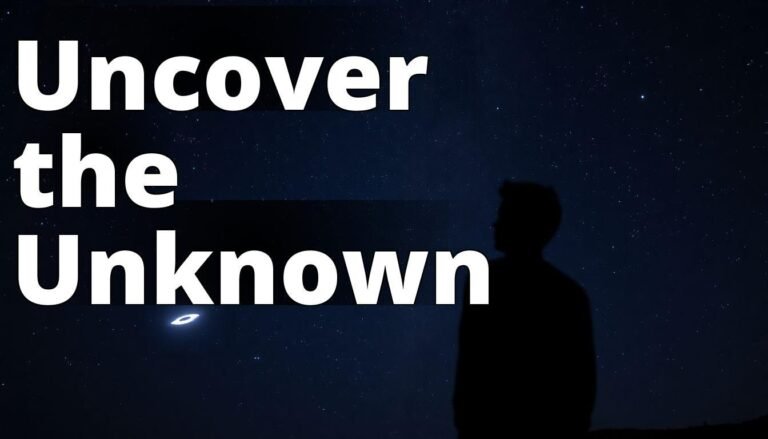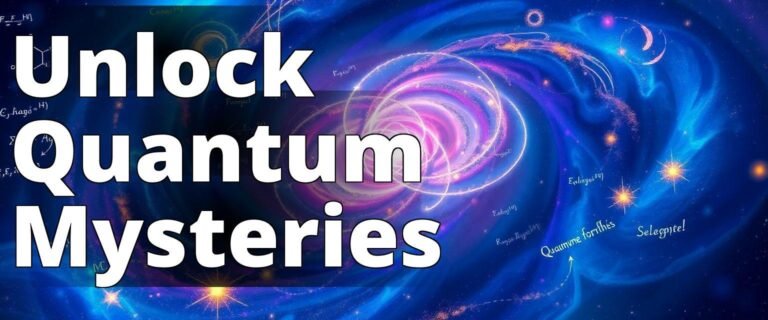Did God Create Man, or Man Create God?
The eternal question of whether God created man or man created God is as complex as it is compelling. It’s the kind of question that requires us to examine the roots of our beliefs and the stories that have been passed down through the ages. Is it possible that the gods and the divine entities we revere were born out of the human imagination, crafted to explain the unexplainable and to provide comfort in the face of life’s uncertainties? Or is there a higher power that orchestrated the essence of our being and the universe we inhabit? In this exploration, we venture into the documentary “The Invention of God” to uncover how these concepts may have been shaped by human culture, history, and psychology.

Insider Tip: A historian once remarked, “Understanding the origin of our gods is akin to understanding the essence of humanity itself.”
Understanding Divine Concepts
Explore the complex relationship between humanity and divinity, uncovering how various concepts related to gods and religion have been shaped.
– The Invention of God: Gods are often conceived through human experiences and cultural contexts, showcasing how societies create deities to explain existence and morality.
– The Invention of Religion: Religion emerges as a structured way for humans to understand their world, providing community, purpose, and ethical guidelines.
– The Invention of the Afterlife: The concept of an afterlife reflects human desires for continuity and meaning beyond death, often constructed through narratives and beliefs unique to cultures.
The Invention of God
The idea of God as an invention is not new. Throughout history, humans have told stories of divine beings, each with their own personalities, powers, and domains. These stories often reflect the values, fears, and aspirations of the cultures that created them. For instance, the gods of ancient Greece were not omnipotent; they had human-like flaws and emotions. This portrayal suggests that early humans may have invented gods in their own image, to make sense of the world around them.
In examining “The Invention of God,” we see how these stories evolved. The documentary suggests that as societies became more complex, so too did their gods. From the animistic beliefs of indigenous tribes to the monotheistic religions dominating today’s world, there is a clear trajectory of human influence on divine narratives. Consider how the Hebrew God, Yahweh, transitioned from a tribal deity to a universal figure. This evolution may indicate a human inclination to adapt religious narratives to fit societal changes.

The Invention of Religion
Religion, as a structured system of beliefs and practices, is another human creation aimed at understanding and influencing the world. It provides a moral framework, a sense of community, and answers to existential questions. But why did humans feel the need to organize their spiritual beliefs into religions? One theory is that religion helped early societies maintain social order and cohesion. By establishing a common belief system, leaders could unify people, justify laws, and promote cooperation.
“The Invention of God” delves into the origins of major world religions, tracing how they borrowed from and influenced each other. For example, Christianity and Islam both draw heavily from Judaism, illustrating how religious ideas are not static but evolve through cultural exchange. This raises a critical question: If religions are so deeply intertwined, can any single belief system claim to hold the ultimate truth?

The Invention of Morality
Morality is often seen as divinely inspired, yet evidence suggests it is a social construct. The documentary posits that moral codes were developed as societies grew in size and complexity. Ancient laws like the Code of Hammurabi or the Ten Commandments reflect efforts to regulate behavior and ensure fairness. These codes were attributed to divine authority, which gave them greater weight and acceptance among the people.
A fascinating aspect explored is the universality of certain moral principles. Studies show that concepts like fairness and empathy are found across cultures and even in other species, suggesting a biological basis for morality. This challenges the notion that morality is solely a religious invention and prompts us to consider whether our sense of right and wrong is more innate than divine.

The Invention of Heaven and Hell
The concepts of heaven and hell are among the most powerful tools religions use to influence behavior. They offer rewards and punishments that extend beyond this life, motivating adherents to follow religious teachings. But where did these ideas originate? The documentary highlights how these beliefs evolved from earlier notions of the afterlife found in Mesopotamian, Egyptian, and Zoroastrian traditions.
Heaven and hell reflect human desires and fears: the yearning for eternal bliss and the dread of perpetual suffering. Their invention may have been a way to address the question of justice in a world where good deeds often go unrewarded. This raises an intriguing question: Are our actions truly guided by spiritual beliefs, or are they motivated by the promise of future consequences?

The Invention of the Soul
The soul represents the essence of individual identity and consciousness. It is a concept that appears in many cultures, often associated with the idea of immortality. The documentary explores how the belief in a soul might have arisen from early humans’ attempts to grapple with the mystery of life and death. By imagining a part of themselves that could transcend mortality, they found comfort in the face of life’s impermanence.
Interestingly, scientific research into consciousness and the mind-brain connection challenges traditional views of the soul. Neuroscience suggests that what we perceive as the “self” is a product of brain activity, raising questions about the existence of an immortal soul. This scientific perspective invites us to reconsider our understanding of identity and the afterlife.

The Invention of Sin
Sin is a concept that has been used to define what is morally wrong or offensive to a deity. It serves as a tool for religious institutions to dictate acceptable behavior and maintain control over followers. The documentary traces the origin of sin to early religious teachings, where it was used to explain suffering and misfortune. By attributing negative events to divine punishment, religious leaders could reinforce moral codes and justify their authority.
In contemporary society, the idea of sin often clashes with secular views of ethics and justice. As we become more aware of cultural and historical influences on religious teachings, we must ask ourselves: Is sin an absolute truth, or a reflection of human prejudices and power dynamics?

The Invention of Free Will
Free will is a cornerstone of many religious and philosophical systems, emphasizing personal responsibility and moral choice. Yet, the concept of free will is fraught with contradictions, particularly in the face of an omniscient deity. If God knows all outcomes, can we truly be free? The documentary explores this paradox, suggesting that free will may have been invented to reconcile the existence of evil with belief in a benevolent, all-knowing God.
The debate over free will extends beyond religion into the realms of neuroscience and psychology. Studies on decision-making and behavior indicate that our choices may be influenced by subconscious processes, challenging the notion of true autonomy. This insight prompts us to question the nature of freedom and accountability.

The Invention of Faith
Faith is the belief in something without empirical evidence. It is a powerful motivator that has inspired acts of great altruism and heinous atrocities alike. The documentary examines how faith has been used to unite communities and propel social movements, but also how it can blind adherents to reason and evidence. Faith’s resilience, even in the face of contrary facts, suggests it fulfills a deep-seated human need for certainty and meaning.
Faith often requires a suspension of skepticism, which can lead to cognitive dissonance when religious beliefs collide with scientific discoveries. This tension raises a thought-provoking question: Is faith a virtue that sustains the human spirit, or a barrier to understanding and progress?

The Invention of Prayer
Prayer is a practice found in many religions, serving as a means of communication with the divine. It is often seen as a way to seek guidance, express gratitude, or request intervention. The documentary explores the origins of prayer, suggesting it may have developed from early mantras and chants used in rituals to invoke spiritual forces.
Scientific studies on prayer’s efficacy show mixed results, with some suggesting psychological benefits like stress reduction and increased focus. However, the lack of consistent evidence for divine intervention challenges traditional views of prayer as a tool for influencing external events. This invites us to reconsider the purpose and power of prayer in our lives.

The Invention of the Afterlife
Belief in an afterlife is a common thread in many religious traditions, offering hope of reunion with loved ones and justice for wrongs suffered in life. The documentary traces the evolution of afterlife beliefs, from the shadowy underworlds of ancient mythologies to the elaborate heavens and hells of modern religions.
These beliefs reflect human hopes and fears about death and the unknown. As we learn more about the nature of consciousness and the universe, we must ask ourselves: Are these beliefs a reflection of reality or a comforting illusion created by human imagination?

The Invention of the Universe
The creation of the universe is a central theme in many religious narratives, often involving a divine being or beings. The documentary contrasts these stories with scientific theories like the Big Bang, which offer natural explanations for the universe’s origins. This comparison raises questions about the role of science and religion in explaining our existence.
As we continue to explore the cosmos and uncover its mysteries, the lines between scientific discovery and religious belief may blur. This ongoing dialogue challenges us to consider the nature of knowledge and the limits of human understanding.

Conclusion
“The Invention of God” challenges us to rethink the origins and purposes of the divine concepts that have shaped human history. By exploring these inventions, we better understand not only the nature of belief but also the essence of what it means to be human. Whether God created man or man created God remains an open question, but the impact of these ideas on our lives is undeniable. As we seek answers, we must remain open to the complexities of faith, reason, and the human experience.
For a deeper exploration of these themes, visit Thin White Lies.

Questions and Answers
Who proposed the idea of gods being human inventions?
Various philosophers and scholars have proposed this idea throughout history.
What is the main argument for man creating gods?
The argument suggests that humans created gods to explain life’s mysteries.
How do different cultures view the invention of gods?
Different cultures have unique beliefs and myths about the origins of gods.
Why do some people reject the notion of gods being invented?
Many believe that gods exist independently of human perception and creation.
What evidence supports the theory of man creating gods?
Anthropological studies show that gods often reflect human values and experiences.
How can the debate enhance our understanding of religion?
It encourages deeper reflection on faith, belief systems, and human nature.







